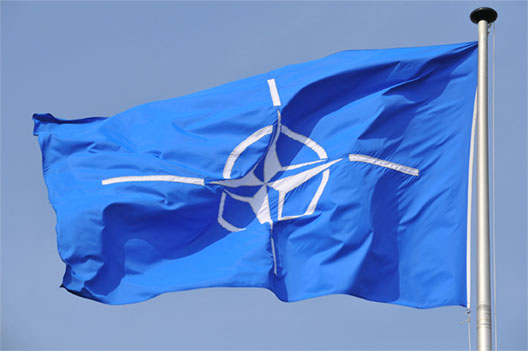
Alliance Will Talk Budgets, Partnerships, and Rapid Deployment, But Its Ukraine Move Will Be Symbolic
As NATO convenes its annual summit conference this week, policy analysts have urged the alliance to take a major step in response to the escalating crisis in Ukraine. They are unlikely to do so, focusing instead on three more prosaic issues.
President Barack Obama’s biggest priority will be for our European allies to pledge (again) to meet the NATO goal of investing at least 2 percent of GDP in defense capabilities. All of the members promised to do this in 2006, but apart from the US, only three NATO members — Estonia, Greece, and Great Britain – meet this standard. President Obama’s allies will reluctantly repeat their pledge this week, but most will not increase their defense spending to fulfill their obligations.
NATO leaders also will authorize the development of a new, high-readiness force to strengthen deterrence in Europe. Russian’s invasion of Ukraine and the speed with which it seized Crimea have made NATO members desire a more quickly deployable deterrence force in the Alliance. This new force will be agreed upon in principle, but too many of its key details will not be resolved by the close of the summit. For example, can NATO political decision-making be evolved to match a higher state of military readiness or will the North Atlantic Council continue to be a major impediment to prompt action? Also, will allies pay the additional costs for keeping even a small force at a high state of readiness month after month?
The summit conference’s final major decision will be to “enhance” partnerships with a select group of nonmembers. It is not known how many of NATO’s forty partners will be given this special status, but it seems likely to be fewer than the thirteen that received recognition at the Chicago summit in 2012. Another concern is that NATO leaders may agree on “enhanced” partnerships, but have yet to agree on the details of what that means for the chosen few.
On Ukraine, the Alliance’s consensus will be that it is sufficient that they give the president of Ukraine a special meeting at the summit. NATO will also provide some more details about the trust funds for helping Ukraine that foreign ministers approved a few months ago, but no powerful political or military decisions about saving Ukraine should be expected from this summit.
Jorge Benitez is director of the Atlantic Council’s NATOSource blog and a senior fellow at its Brent Scowcroft Center on International Security.
